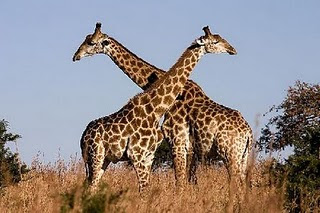
(First posted 2011. Last updated 2025)
There are certain thoughts that will always reveal your age. Hearing that QPR and Norwich have been promoted back to the Premier League, I had the instinctive response that that seemed right, the rightness signifying nothing more than that both teams were at their peak in the late eighties and early nineties when I was in my teens and early twenties and was paying much closer attention to League football (and that both were entertaining and attractive teams to watch, too - once QPR had stopped using that plastic pitch, anyway. If Wimbledon and Luton had returned to the big time - not though either of them exist as league teams anymore - my reaction would have been "Here we go again")
This thought raised a further question "Which teams actually have been in the top division for the most years?" I couldn't find a table of all of this information anywhere - after 1992 certainly, the term "Since Premier League records began" a guaranteed way to irritate anyone over about thirty - so I ended up having to collate it myself. So here's the compound table of First Division/ Premier League membership since 1888 -
1. Everton 123 seasons (1888-1915/ 1919-30, 1931-39/ 1946-51, 1954-2026)
2. Aston Villa 112 (1888-1915/ 1919-36, 1938-39/ 1946-59, 1960-67, 1975-87, 1988-2016, 2019-26)
3. Arsenal 109 (1904-13, 1919-39/ 1946-2026)
4. Liverpool 108 (1894-95, 1896-1904, 1905-15/ 1919-39/ 1946-54, 1962-2026)
5. Manchester U 101 (1892-94, 1906-15/ 1919-22, 1925-31, 1936-37, 1938-39/ 1946-74, 1975-2026)
6. Manchester City 96 (1899-1902, 1903-09, 1910-15/ 1919-26, 1928-37, 1947-50, 1951-63, 1966-83, 1985-87, 1989-96, 2000-01, 2002-26)
7. Newcastle 92 (1898-1915/ 1919-34, 1948-61, 1965-78, 1984-89, 1993-2009, 2010-16, 2017-26)
8. Chelsea 91 (1907-10, 1912-15/ 1919-24, 1930-39/ 1946-62, 1963-75, 1977-79, 1984-88, 1989-2026)
=. Tottenham 91 (1909-1915, 1920-28, 1933-35, 1950-77, 1978-2026)
10. Sunderland 87 (1890-1915/ 1919-39/ 1946-58, 1964-70, 1976-77, 1980-85, 1990-91, 1996-97, 1999-2003, 2005-06, 2007-17, 2025-26)
11. WBA 81 (1888-1901, 1902-04, 1911-15/ 1919-27, 1931-38, 1949-73, 1976-86, 2002-03, 2004-06, 2008-09, 2010-18, 2020-21)
12. Bolton 73 (1888-99, 1900-03, 1905-08, 1909-10, 1911-15/ 1919-33, 1935-39/ 1946-64, 1978-80, 1995-96, 1997-98, 2001-12)
13. Blackburn 72 (1888-1915/ 1919-36, 1946-48, 1958-66, 1992-99, 2001-12)
14. Wolves 71 (1888-1906, 1932-39/ 1946-65, 1967-76, 1977-82, 1983-84, 2003-04, 2009-12, 2018-26)
15. Derby 68 (1888-1907, 1912-14, 1919-21, 1926-39/ 1946-53, 1969-80, 1986-91, 1996-2002, 2007-08)
=. West Ham 68 (1923-32, 1958-78, 1981-89, 1991-92, 1993-2003, 2005-11, 2012-26)
17. Sheffield Wednesday 66 (1892-99, 1900-1915/ 1919-20, 1926-37, 1950-51, 1952-55, 1956-58, 1959-70, 1984-1990, 1991-2000)
18. Sheffield U 62 (1893-1915/ 1919-34, 1946-49, 1953-56, 1962-68, 1971-76, 1990-94, 2006-07, 2019-21, 2023-24)
=. Stoke 62 (1888-90, 1891-1907, 1922-23, 1933-39/ 1946-53, 1963-77, 1979-85, 2008-18)
20. Burnley 61 (1888-97, 1898-1900, 1913-15/ 1919-30, 1947-71, 1973-76, 2009-10, 2014-15, 2016-22, 2023-24, 2025-26)
=. M'boro 61 (1902-15/ 1919-24, 1927-28, 1929-39/ 1946-54, 1974-82, 1988-89, 1992-93, 1995-97, 1998-2009, 2016-17)
22. Nottingham Forest 60 (1892-1906, 1907-11, 1922-25, 1957-72, 1977-93, 1994-97, 1998-99, 2022-26)
23. Birmingham 57 (1894-96, 1901-02, 1903-08, 1921-39, 1948-50, 1955-65, 1972-79, 1980-84, 1985-86, 2002-06, 2007-08, 2009-11)
24. Leicester 56 (1908-09, 1925-35, 1937-39, 1954-55, 1957-69, 1971-78, 1980-81, 1983-87, 1994-95, 1996-2002, 2003-04, 2014-23, 2024-25)
25. Leeds 54 (1924-27, 1928-31, 1932-39/ 1946-47, 1956-60, 1964-82, 1990-2004, 2020-23, 2025-26)
26. Preston 46 (1888-1901, 1904-12, 1913-14, 1919-25, 1934-39/ 1946-49, 1951-61)
27. Southampton 45 (1966-74, 1978-2005, 2012-23, 2024-25)
28. Coventry 34 (1967-2001)
29. Portsmouth 33 (1927-39/ 1946-59, 1987-88, 2003-10)
30. Huddersfield 32 (1921-39/ 1946-52, 1954-56, 1970-72, 2017-19)
31. Fulham 30 (1949-52, 1959-68, 2001-14, 2018-19, 2020-21, 2022-26)
=. Notts C 30 (1888-93, 1897-1913, 1914-15/ 1919-20, 1923-26, 1981-84, 1991-92)
33. Blackpool 28 (1930-33, 1937-39/ 1946-67, 1970-71, 2010-11)
34. Ipswich 27 (1961-64, 1968-86, 1992-95, 2000-02, 2024-25)
=. Norwich 27 (1972-74, 1975-81, 1982-85, 1986-95, 2004-05, 2011-14, 2015-16, 2019-20, 2021-22)
36. Charlton 26 (1936-39/ 1946-57, 1986-90, 1998-99, 2000-07)
=. Crystal Palace 26 (1969-73, 1979-81, 1989-93, 1994-95, 1997-98, 2004-05, 2013-26)
38. QPR 23 (1968-69, 1973-79, 1983-96, 2011-13, 2014-15)
39. Bury 22 (1895-1912, 1924-29)
40. Cardiff 17 (1921-29, 1952-57, 1960-62, 2013-14, 2018-19)
=. Luton 17 (1956-60, 1974-75, 1983-92, 2023-24)
42. Wimbledon 15 (1985-2000)
43. Watford 14 (1982-88, 1999-2000, 2006-07, 2015-20, 2021-22)
44. Brighton 13 (1979-83, 2017-26)
45. Bradford 12 (1908-15/ 1919-22, 1999-2001)
=. Grimsby 12 (1901-03, 1929-32, 1934-39/ 1946-48)
=. Oldham 12 (1910-15/ 1919-23, 1991-94)
48. Brentford 10 (1935-39/ 1946-47, 2021-26)
49. Bournemouth 9 (2015-20, 2022-26)
=. Bristol City 9 (1906-11, 1976-80)
=. Swansea 9 (1981-83, 2011-18)
52. Wigan 8 (2005-13)
53. Accrington 5 (1888-93)
=. Hull 5 (2008-10, 2013-15, 2016-17)
55. Bradford Park Avenue 3 (1914-15/ 1919-21)
=. Oxford 3 (1985-88)
=. Reading 3 (2006-08, 2012-13)
58. Darwen 2 (1892-94)
=. Millwall 2 (1988-90)
60. Barnsley 1 (1997-98)
=. Carlisle 1 (1974-75)
=. Glossop 1 (1899-1900)
=. Leyton Orient 1 (1962-63)
=. Northampton 1 (1965-66)
=. Swindon 1 (1993-94)


























